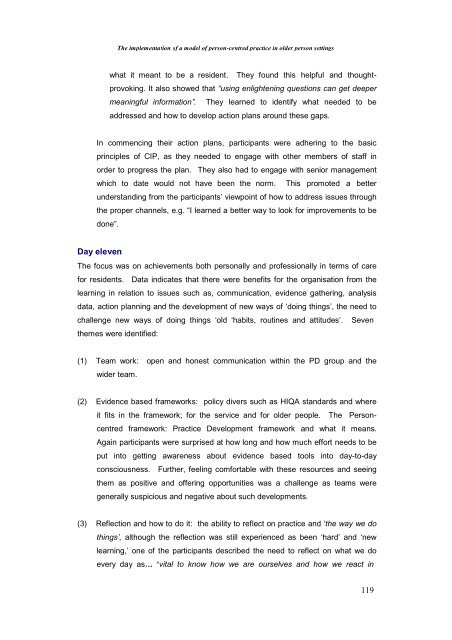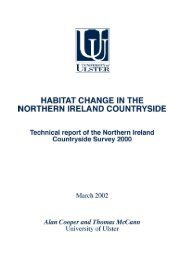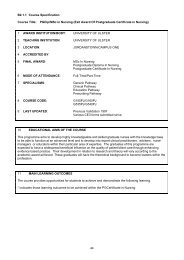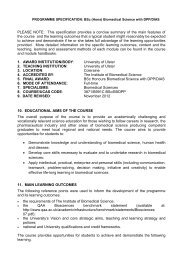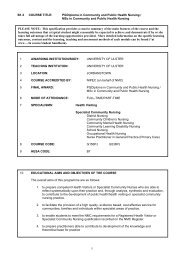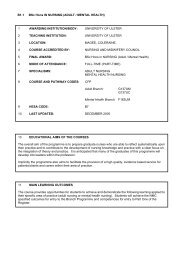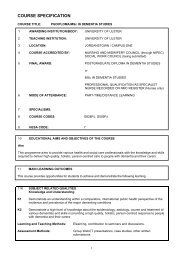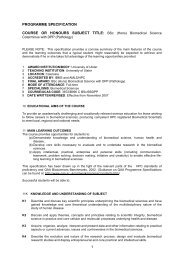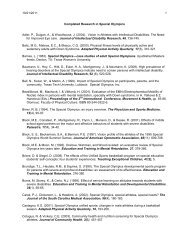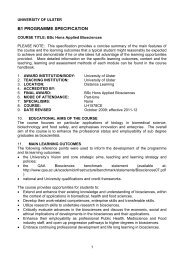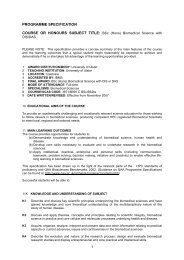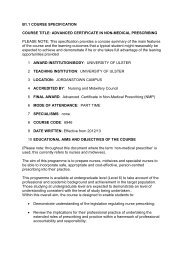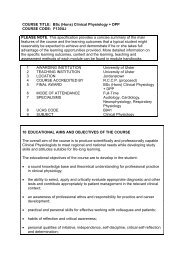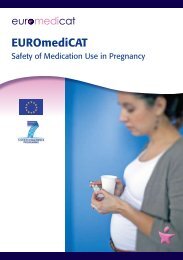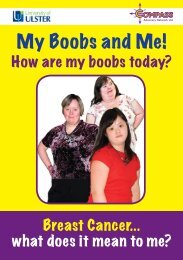The Implementation of a Model of Person-Centred Practice In Older ...
The Implementation of a Model of Person-Centred Practice In Older ...
The Implementation of a Model of Person-Centred Practice In Older ...
You also want an ePaper? Increase the reach of your titles
YUMPU automatically turns print PDFs into web optimized ePapers that Google loves.
<strong>The</strong> implementation <strong>of</strong> a model <strong>of</strong> person-centred practice in older person settings<br />
what it meant to be a resident. <strong>The</strong>y found this helpful and thoughtprovoking.<br />
It also showed that “using enlightening questions can get deeper<br />
meaningful information”. <strong>The</strong>y learned to identify what needed to be<br />
addressed and how to develop action plans around these gaps.<br />
<strong>In</strong> commencing their action plans, participants were adhering to the basic<br />
principles <strong>of</strong> CIP, as they needed to engage with other members <strong>of</strong> staff in<br />
order to progress the plan. <strong>The</strong>y also had to engage with senior management<br />
which to date would not have been the norm. This promoted a better<br />
understanding from the participants’ viewpoint <strong>of</strong> how to address issues through<br />
the proper channels, e.g. “I learned a better way to look for improvements to be<br />
done”.<br />
Day eleven<br />
<strong>The</strong> focus was on achievements both personally and pr<strong>of</strong>essionally in terms <strong>of</strong> care<br />
for residents. Data indicates that there were benefits for the organisation from the<br />
learning in relation to issues such as, communication, evidence gathering, analysis<br />
data, action planning and the development <strong>of</strong> new ways <strong>of</strong> ‘doing things’, the need to<br />
challenge new ways <strong>of</strong> doing things ‘old ‘habits, routines and attitudes’. Seven<br />
themes were identified:<br />
(1) Team work: open and honest communication within the PD group and the<br />
wider team.<br />
(2) Evidence based frameworks: policy divers such as HIQA standards and where<br />
it fits in the framework; for the service and for older people. <strong>The</strong> <strong>Person</strong>centred<br />
framework: <strong>Practice</strong> Development framework and what it means.<br />
Again participants were surprised at how long and how much effort needs to be<br />
put into getting awareness about evidence based tools into day-to-day<br />
consciousness. Further, feeling comfortable with these resources and seeing<br />
them as positive and <strong>of</strong>fering opportunities was a challenge as teams were<br />
generally suspicious and negative about such developments.<br />
(3) Reflection and how to do it: the ability to reflect on practice and ‘the way we do<br />
things’, although the reflection was still experienced as been ‘hard’ and ‘new<br />
learning,’ one <strong>of</strong> the participants described the need to reflect on what we do<br />
every day as… ‘vital to know how we are ourselves and how we react in<br />
119


